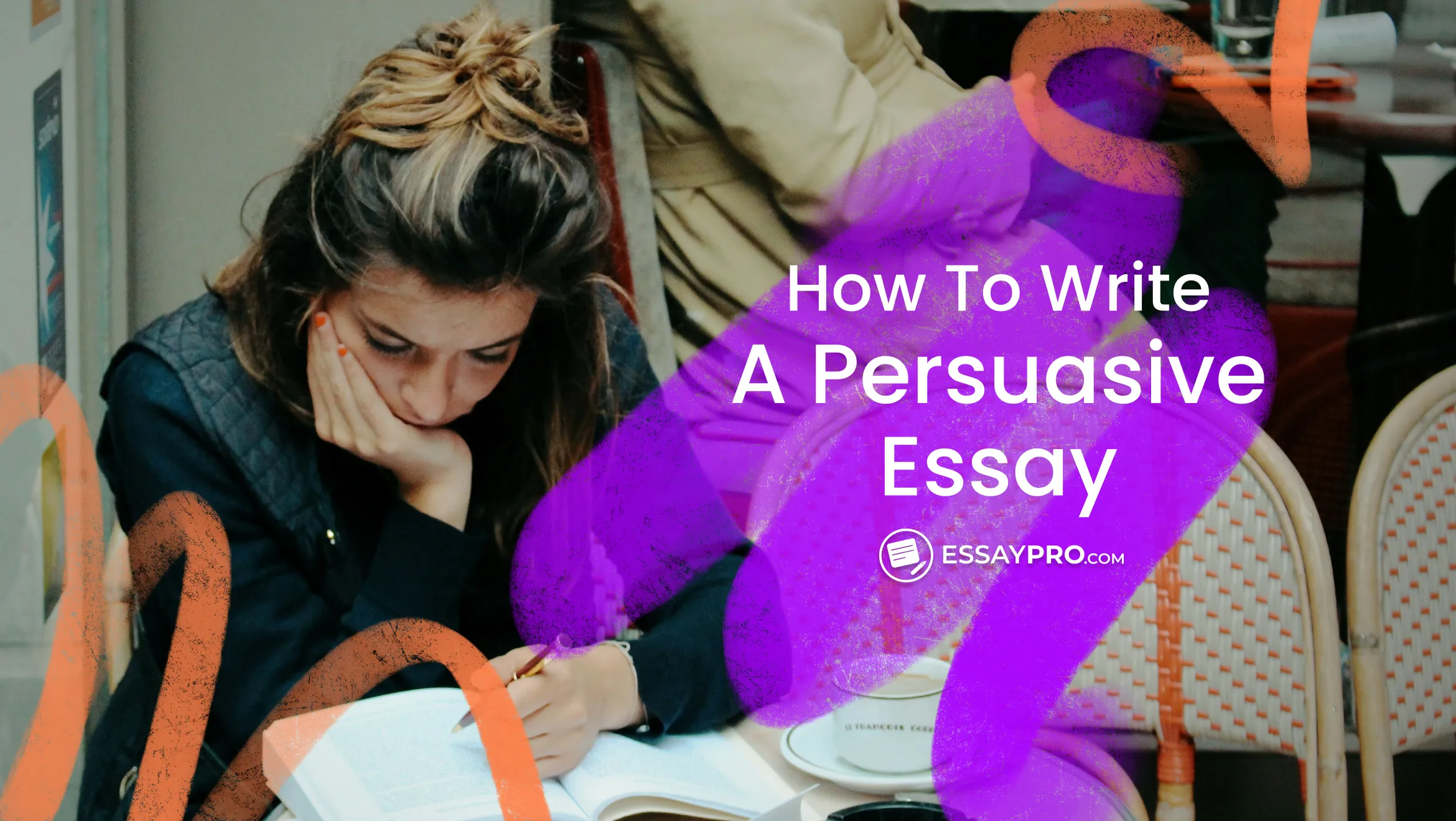A personal essay is a brief piece of writing that takes one actual experience to show something about you, your character, or your perspective. You pick a moment that clearly influenced you, and give the story its shape: introduction, body paragraphs, and conclusion. While writing the first draft, all you should be focused on is getting the entire story onto paper to see what you will keep or what you will cut.
The point of this article is to help you with the steps to write a personal essay and make the reader remember your story. Many students overthink it or end up sounding flat, so this guide is here to walk you through the process step by step.
If you are stuck on a blank page, EssayPro is the place to go. Our online essay writing service has helped thousands of students struggling with admissions essays.


What Is a Personal Essay?
A personal essay is a short narrative that uses one lived experience to make a clear claim about who you are. The piece pairs concrete events with reflection so the reader sees cause, choice, and change inside a tight frame.
Admissions officers read to judge judgment: what you chose to highlight, which details you kept, how you handled tension, and where the experience points next.
In practice, you select one event or relationship, establish stakes early, and track a before-and-after that the reader can follow without guessing. The goal is simple: show how the specific insight now guides what you plan to do.
EssayPro can help when you’re overwhelmed with deadlines. Just ask us, ‘Do my homework for me,’ and we’ll take it from there.
Personal Essay Format
Before you start writing, familiarize yourself with the format of a personal essay and what you’re expected to do. A great personal essay usually follows the same basic guidelines as other types of writing, but with more room for reflection. Here are some rules to follow:
If you’re curious about how formatting compares across styles, you can also check out the Harvard essay format, which follows its own set of guidelines.
Essential Elements of a Personal Essay
A personal essay within a college application works when every part of it carries weight. The elements below shape how the essay holds together and how admissions officers will read it.
- A defined topic: Most essays collapse under the weight of trying to say everything at once. The best ones cut almost everything away and hold on to a single thread.
- Context and setting: Every personal story lives in a place. If you hide that place, the essay feels untethered. Context is what signals to the reader that this story didn’t float in; it happened, and it happened somewhere real.
- Specific scenes: General claims slide past the eye. Scenes and characters hold it. When you describe actions or a line of dialogue, the reader stops skimming and starts picturing. Neuroscience calls this ‘embodied simulation’: the brain lights up as though it were inside the moment.
- Analysis of impact: The event itself is half the work. The other half is showing how it reshaped your thinking. Reflection is where you mark the turning point. Without it, the essay is a snapshot. With it, the essay becomes evidence of growth that admissions officers can actually measure.
- A logical flow: Readers don’t come to your essay to solve a riddle. They need a line they can follow. That means a beginning that sets the question, a middle that traces what happened, and an ending that closes the loop.
- Personal voice: Voice is the accumulation of choices: which words you reach for, how much honesty you risk, when you decide to stop explaining. Readers can sense when the writing bends away from the person and into something manufactured. That’s when attention slips.
Personal Essay Outline
An outline for personal essay has three main parts. The introduction sets up the event or theme. The body combines narrative and reflection. The conclusion ties it all together by connecting the lesson to your current self or future goals. Many students find it useful to think of the structure as similar to the 5 paragraphs model: an introduction, three body paragraphs, and a conclusion that ties it all together.
Personal Essay Introduction
Start your writing process with an introductory paragraph. As it gives your reader a clear understanding of what the story will be about. Employ a hook sentence to catch their attention and motivate them to read the essay aloud the rest of the paper with a whimsical thesis statement. It can be a narrative thesis, for example. But it must be written in one concise sentence that will bring the reader to the starting point of your essay.
Don't leave your readers in the dark in the introduction by explaining the important things such as:
- Who are the key people in this story?
- Where and when does it unfold?
- What type of experience are you about to share?
Example:
At five in the morning, I was waist-deep in the Atlantic, gripping a tangled fishing net with numb fingers. The tide pulled harder than I expected, and for a second I thought about letting go. Instead, I steadied myself and kept working beside my uncle. That dawn taught me more about persistence than any advice I had ever been given.
Personal Essay Body
After creating an introduction, you must formulate three body paragraphs supporting your thesis statement. Each new point should contain its own body paragraph. Don't forget to make transitions from one paragraph to another to make sure that everything flows smoothly.
Usually, the body section is presented in the form of your experiences and your reflections on these events. You should also note the passage of time in your body sections, so make sure that the reader is aware of when and how each specific chapter took place.
Example:
Each pull on the net felt heavier than the last, yet my uncle never paused. He moved with the rhythm of someone who had done this work his whole life, steady and unshaken. I matched his pace, though every muscle in my arms protested. When we finally hauled the net over the boat’s edge, soaked and knotted with seaweed, I felt an odd sense of victory. It wasn’t about the catch itself but about proving to myself that I could endure something that once felt impossible.
Personal Essay Conclusion
A good conclusion, as part of a personal essay structure, doesn’t rehash the story you already told. It shows the change that came from it. By the final paragraph, the reader should clearly see the gap between who you were at the start and who you are now. That closing space is where you prove the experience mattered and still influences the way you think or act today.
Example:
I never thought a fishing net at sunrise would teach me anything beyond how cold the Atlantic can be. Yet that morning left me with more than sore arms. It gave me a habit of pushing through discomfort, and oddly enough, I now welcome those moments, because they’re the ones that end up changing me the most.
How to Write a Personal Essay: Key Steps
If you think you already possess sufficient knowledge of personal essays, we've yet to supply you with more information. Now let's explore the various stages of personal essay writing. Follow the list of valuable tips and advice without skipping a beat from our service where you can buy personal statement too.
Start with an Engaging Opening Sentence
Open your personal essay with an introductory sentences that will be engaging and interesting for your reader. In the opening section, introduce the principal characters of the story as well as the central theme or themes. It should also present the fundamental question of the essay.
Write from Your Unique Point of View
When admissions officers read, they’re not counting how many adjectives you stack. They’re asking: Does this sound like a person I could sit across from? That’s why you should create a personal essay in the rhythms of your own mind. The detail that hooked you in the moment, the scrape of gravel under your shoes, the way silence stretched after someone spoke, is the detail that will hook the reader, too. What makes the essay work isn’t polish, it’s perspective.
Take the Characters into Account
Even when the essay is about you, you’re never the only figure on stage. The people who appear in your story shape how the reader understands you. Offer a vivid description: the way a family member’s voice cracked when they told you the truth, or the glance from a coach that said more than words. Character is built from behavior, not labels. If you capture that, your essay moves from a flat retelling into something readers can feel themselves standing inside.
Shed Light on a Deep Truth
Surface honesty is easy. Real honesty requires putting something on the pages you once hesitated to admit. That could mean recognizing a failure you tried to hide or acknowledging that a moment didn’t make sense to you until much later. Readers respond when you risk saying the harder thing: the truth you nearly edited out. It doesn’t weaken you; it signals that you’re capable of reflection at a level most people avoid. That’s what makes a personal essay linger after the page is turned.
Write a First Draft & Submit
After you have completed all the previous steps, it's time to write a rough draft. Writing a rough draft lets you get new ideas for a personal statement. Moreover, it's a great place to polish your essay and correct small grammar, spelling, and other types of mistakes. Get a second pair of eyes: No one can rate your writing as well as a neutral party. Once you have checked everything, you can start writing the final paper.
Your essay should balance storytelling with analysis. Some essays lean closer to narrative, others take on a tone similar to a persuasive essay, aiming to convince admissions officers why you’d be a strong fit for their college.
Personal Essay Examples
In our time it’s much easier to find things on the Internet, and examples are not an exception. Remember one simple thing: not everything that you can find on the Internet is done correctly. If you need some inspiration to get started, you can find several examples of personal essays below, or you can use our free essay samples to sharpen your skills on any type of writing.
Final Thoughts
Anyone can describe an event. The real measure is whether you can show the shift it left behind and connect that change to who you are now. Admissions officers read with that question in mind: Does this student notice the difference between what happened and what it meant?
That kind of writing isn’t simple. It demands reflection, revision, and the ability to hear your own voice without smoothing away its edges. If you reach a point where the draft feels flat or stuck, EssayPro is a place where students can purchase essay and find guidance that respects their perspective.
FAQs
What Are 5 Elements of a Personal Essay?
The five elements of a personal essay include: a topic, context, scenes, reflection, and conclusion.
How to Format a Personal Essay?
Follow standard academic rules, 12-point font, one-inch margins, double spacing. For college essay, keep the length within limits (the Common App’s 650-word cap is strict).
How to Start a Personal Essay?
The most effective openings are the ones that bring the reader into the specific moment you’re revisiting. The opening should set up a scene and spark curiosity, making the reader become invested in the good story.

Daniel Parker
is a seasoned educational writer focusing on scholarship guidance, research papers, and various forms of academic essays including reflective and narrative essays. His expertise also extends to detailed case studies. A scholar with a background in English Literature and Education, Daniel’s work on EssayPro blog aims to support students in achieving academic excellence and securing scholarships. His hobbies include reading classic literature and participating in academic forums.
- St. John’s University. (2023, July 24). Personal essay tips for college admissions. St. John’s University. https://www.stjohns.edu/news-media/johnnies-blog/personal-essay-tips-for-college-admissions
- Johns Hopkins University. (n.d.). Essays that worked. Office of Undergraduate Admissions. https://apply.jhu.edu/college-planning-guide/essays-that-worked/
- Duke University. (n.d.). Personal essay. Office of Health Professions Advising. https://advising.duke.edu/prehealth/apply/personal-essay/

.webp)






